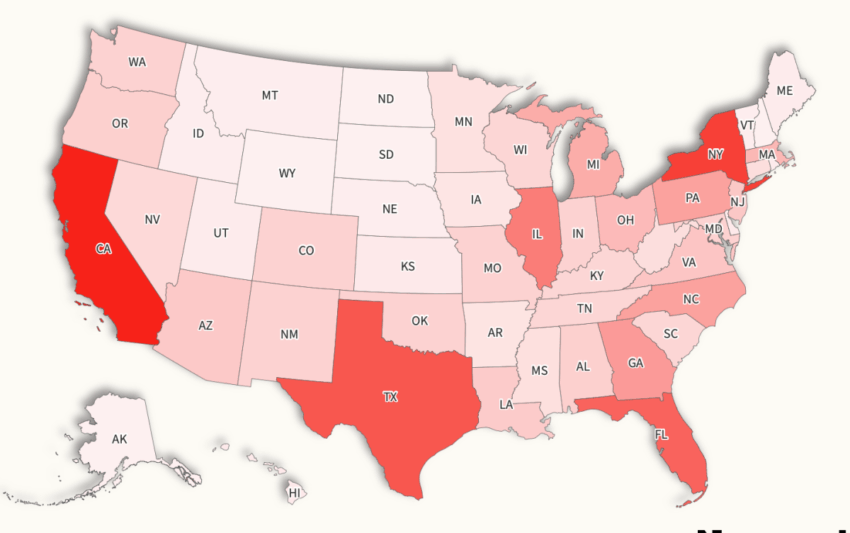Millions of Americans who rely on food assistance are predicted to be removed from the Supplemental Nutrition Assistance Program provision. Under federal law, most adults without disabilities or dependents are required to work, participate in job training, or actively search for work for at least 80 hours each month to maintain eligibility. Those subject to the ABAWD rule may only receive benefits for three months within a three-year period unless they meet these requirements or qualify for an exemption. States can apply for waivers in areas with high unemployment or other economic pressures. State-by-state data, provided by the Center for Budget and Policy Priorities, a left-leaning think tank, show how many people could lose benefits under the OBBBA rules, and the numbers vary widely across the country. California has the highest projected total, with an estimated 368, 000 people at risk of losing benefits. New York follows with 317, 000, then Texas at 275, 000, Florida at 253, 000, and Illinois at 205, 000. These five states alone account for well over a million individuals who could be removed from SNAP rolls under the new requirements. Other states also face significant reductions. Georgia could see 154, 000 recipients removed, while North Carolina may lose 142, 000. Pennsylvania (at 143, 000), Michigan (at 123, 000), Massachusetts (at 103, 000), and Ohio (at 98, 000) are among the states with the next-highest totals. Mid-sized losses include Alabama (61, 000), Oregon (62, 000), Louisiana (68, 000), Virginia (78, 000), and New Jersey (75, 000). In New Mexico, while its estimated 55, 000 people are at risk, it is not among the highest totals, but the state has the largest share of SNAP recipients relative to its general population, at some 21 percent. What People Are Saying Laura Siller, senior director of research and evaluation at Project Bread in Massachusetts, told Newsweek: “The biggest barrier here is the increased paperwork burden and folks struggling to demonstrate that they are meeting the requirements or are eligible for an exemption. “These work reporting requirements will put more administrative lift on SNAP recipients, and recent funding and staffing cuts by the USDA do not engender confidence that remaining staff will be able to quickly process and respond to the increased administrative burden on the other end as well. Delays in service and responsiveness could mean some families lose access to food benefits for some time.” House Speaker Mike Johnson, a Republican, said in May, prior to the passage of the OBBBA: “If you are able to work and you refuse to do so, you are defrauding the system. You’re cheating the system. And no one in the country believes that that’s right. So there’s a moral component to what we’re doing. And when you make young men work, it’s good for them, it’s good for their dignity, it’s good for their self-worth, and it’s good for the community that they live in.” What Happens Next States are currently working to implement the new federal rules.
https://www.newsweek.com/snap-benefits-map-shows-how-many-people-face-being-removed-in-each-state-11103577
